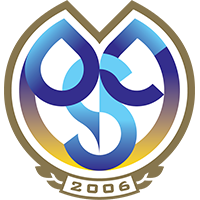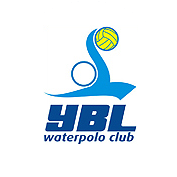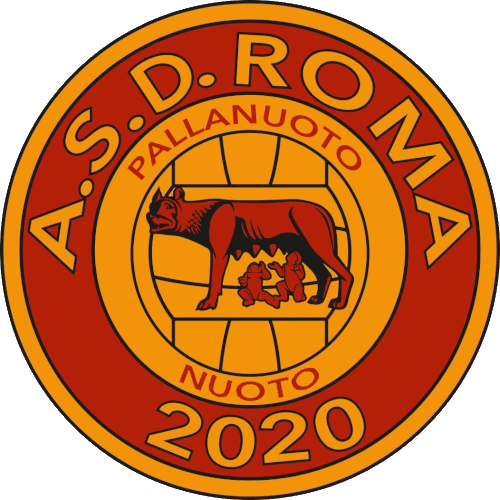Heroes of the past: dr. András Bodnár

A new series is starting on our website - sort of as a prelude to an even bigger, soon-to-be-publicized project. We talk to the heroes of the past about the good old days - and the present too. Our first guest is the last living member of the Tokyo gold team, the first president of MVLSZ, which became independent in 1989, dr. András Bodnár.
1912 is an important milestone for Hungarian water polo. On this occasion, our national teams jumped into the pool for the first time at the Olympics, the members of which started to "deliver" the medals after two fifth-place finishes. Overall, Hungary's national team is the most successful team in the history of the Olympics, with 9 Olympic gold medals won, in addition to which - so far - three silver and four bronze medals have also been won (although we tend to evaluate these as failures in the light of the 9 golds and the traditions).
Analyzing individual success, it can be said that there are not many players who have returned home with medals from the Olympics - there are only ten players in polo history, one Belgian, six Hungarians, and three Serbians since the last Tokyo Games. After György Kárpáti, László Jeney and Mihály Mayer, András Bodnár was the fourth Hungarian to achieve this extraordinary result, later István Szivós and Endre Molnár joined the club (Dezső Gyarmati is the only five-time medalist).Doctor Bodnár He was a member of the Hungarian water polo team in Rome (1960), Tokyo (1964), Mexico City (1968) and Munich (1972) and was able to stand on one of the steps of the podium at all four locations. (Additionally, he could have had the fifth...) Unfortunately, today he is the only living member of the 1964, first-placed national team in Tokyo, who also played an important role in winning two European and one World Cup golds, as well as a World Cup silver. undertook. By no means incidentally, we can honor the first president of the Hungarian Water Polo Association, which became independent for the first time in 1989.
The excellence, also respected as a doctor, is now in its 83rd year, but remains active. Outside of his home, he still spends most of his time at his main "base", the Bajcsy Hospital in Köbánya. Nevertheless, he found a way for us to meet in person twice.
- I have already handed over many of my previous functions and tasks, but the hospital will be one of the last ones - stated the former class manager very firmly. – As a specialist in the removal of gallstones, I am still at home in the medical field, where I still enjoy working, even though I have not operated for quite some time. I treat diseases of the gallbladder and gallstones.
I heartily congratulate you and wish you many more busy years. If I may, let's switch to water polo! Within that, let's jump to the middle of the topic: he participated in four Olympics and was able to work with four captains. Could you say a few words about each of them?
As many species as there were. In 1960, Butykó Lemhényi held the conductor's baton. He was a smart, fine coach. I originally prepared for Rome as a swimmer, Butykó invited me to join the water polo players a few months earlier, where I ended up joining the traveling team. It happened when he trained us three times for two hours. In 1964, Uncle Laky Karcsi was the captain, who had firm professional ideas, and he believed fanatically in the work he had done. The team was undefeated from 1962, and he crowned it with the Olympic gold medal for this period. He was the only captain to be replaced after a victory. In 1968, Kálmán Markovits led the national team; he was a man of extra ability. We played together before, I consider him one of the best managers in the world. My last Olympic captain, uncle Béla Rajki, was a kind of "tight" person, he wanted to manage everything from the pulpit. He was the captain in both 1952 and 1956, and then missed quite a lot of time until 1970, when polo was changing a lot. Everything was the photo, the book, the film, excellently organized. Even when we were preparing for the 1970 European Championship, we felt that the work done was not enough, so we volunteered to put a shovel on it. We should have won in 1972, in Munich, where in the end we had the fewest points lost. The saying that second place is already a failure comes from him.
After Uncle Béla, a completely different leadership followed.
Besides Dezső Gyarmati, there was the Karpáti "Gyurika" who complemented him wonderfully, who knew everything about our sport, but never wanted to take on the responsibility of coaching. Instead of coaching, he was always a consultant; they formed an ideal duo with Gyarmati. Our first victory at the World Cup in Belgrade in 1973 set things in motion. By the way, I was the team captain there as well, and even at the 1975 World Cup, in Colombia, I was there in this capacity. I also prepared for Montreal (1976), but did not make the team. Although I didn't experience the incident as a particular tragedy, I might have deserved to talk about it, why didn't I make it to my fifth Olympics? This has not happened until now, and it will not happen now.
Then how did you realize that you are no longer needed?
After the tournament in Bucharest, he was not invited to the training of the national team. This was announced by Gyurika, who plays the role of lightning rod. Since in 1968, after graduating from medical school, I was transferred to the First Surgery Clinic, where I successfully passed the specialist exam in 1972, so I had more and more work to do at the hospital. I should have trained more to qualify for the sport. In 1978, I quietly retired from my extremely successful club, OSC, under the coaching of János Konrád. After that, I didn't even enter the swimming pool for two years.
Recalling what happened, would you name some names that could have taken them to much more if they had not been blocked by even better, classier players?
The best answer to this question is to mention the name of Sándor Konrád, whose position was preceded by Peti Rusorán, Zoli Dömötör, Dezső Gyarmati, Pista Szivós and Dudi Csapó. I definitely remember when Budapest hosted the World University Games in 1965, three Konrád brothers (Sándor, János and Ferenc) also became team members for the Hungarian polo players.
Fortunately, Hungarian water polo was full of excellent players. During the Colonial era, for example, Csapó and Faragó became world class. Would you compare them?
That would be an impossible undertaking on my part. Both had different virtues. Csapo's biggest positive was that he was able to effectively replace Pista Szívós. And Faragó is one of the best and most colorful individuals of this sport. If someone insists that I rank them, I will answer: Szívós Pista was the best of the two.
However, what was the foundation of the unprecedented Hungarian polo successes?
The fact that there were always extra players in positions that decisively determined the game. The primary requirement is to have a good goalkeeper, a good manager and a good center in a team. If they were given, the band could be built around them.
Does the current captain, Zsolt Varga, also have these defining personalities?
His situation in selecting the Olympic team is not easy. He started the last stage of the preparation with a squad of twenty-one, but in the end only thirteen can remain. You can name two goalkeepers and eleven players and narrow the eighteen down to eleven - that's a huge task. It is not certain that the absolute best will travel, just as it is also uncertain whether the selected ones will be able to perform in their best form there on the given game days. This is a problem for all captains in all team games. In my head, I have the players I would travel with if I were captain. Zsolt is an intelligent, well-prepared national team captain. The most important question is, does he have the key man on whom he can rely without reservation, like, for example, how Dénes Kemény could count on Tibor Benedek or Zsolt Varga? How does he have his Varga Psalter among his chosen ones? The person who can unite his fellow players, whom a national team coach may not always be able to bring to a common denominator.
Then let's talk specifically without names: what do you think the men's water polo team is capable of?
Getting into the top four is a basic requirement for me, but I consider this crew also suitable for reaching the finals. The rest will be revealed at the Olympics.
Let's change the subject, let's talk about the roles he played as a sports manager.
I was called a coach several times, but I never wanted to be one. I could have been a national team captain, but for me the medical profession meant the field. In 1982, József Ruza, the general secretary of the swimming association at the time, asked me if I would be the vice-president of the water polo department. I accepted this invitation after consulting with Róbert Frenkl, who knows the sport very well, so I became the vice-president of the swimmers and also the president of the water polo department. Later, I was also elected to the medical committee established in LEN, where I was a member for decades. In the water polo association, which became independent in 1989, I held the position of president until 1992. This required people like Secretary General Ottó Kiss or Ferenc Salamon, a member of the technical committee of LEN and FINA. Unfortunately, at that time - despite the conditions being ensured - the expected results did not come in water polo.
We cannot forget the Mező Ferenc Foundation.
This task turned out to be a little more suitable. The foundations for this were laid by Dezső Lemhényi. The main objective was to be able to build a social network around former athletes who have achieved serious international success, which they desperately need. Let's be honest, many of those who have not won at least an Olympic bronze medal in their career may find themselves in a critical financial situation in their old age. I was a member of the management board of this organization that implements social goals until 2007, until the death of Gyula Zsivotzky, after which I was elected president. The Sports Public Foundation ceased to exist in 2011, and its tasks were taken over by the committee operating under the auspices of the MOB, which is gradually doing its work under better conditions, and which I continue to lead. We currently have about forty previously successful sportsmen whose support is justified from several points of view. Most of them are retirees with health problems. We have contractual agreements with several hospitals for their treatment, and we can help them in this way as well.
As an absolute sports connoisseur and a former world class who follows the events of sports life, what do you expect from the five-a-side games? For example, do you have any favorite sports or competitors?
I am sure that the traditionally good performance of the Hungarian delegation will continue. In addition to water polo, I will be following the events of kayakers, fencers and sports shooters with particular attention. I look forward to Kristóf Milák's appearance with distinct curiosity, as I make no secret of it: I will push him very hard to achieve the best possible result.
What can you know dr. About András Bodnár, the civil man?
With my wife, dr. I met Ildiko Herendi at university. He is also active as an internist-cardiologist. I have a son and a daughter. They both have families, so I can be happy with my three grandchildren. The two girls do sports as dressage riders, the boy plays polo with the YBL youth team.
Károly Jocha





